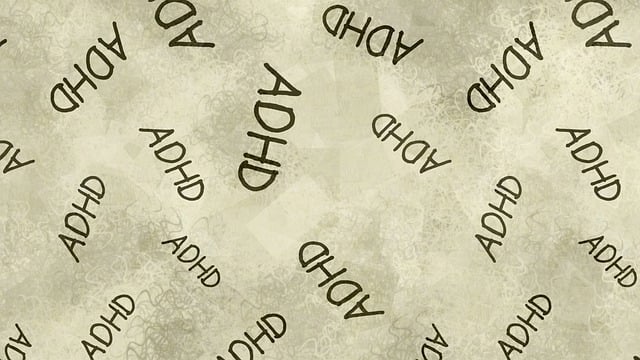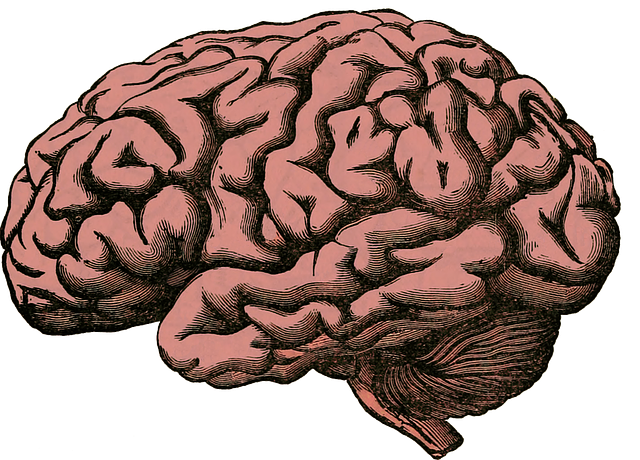Lafayette Child Abuse Therapy offers mental wellness groups as a safe space for individuals to connect, share struggles, and learn from one another through open communication facilitated by trained professionals. These structured sessions encourage emotional intelligence, peer-to-peer learning, and the development of coping strategies while fostering a supportive community. Facilitators create inclusive environments, adapt to diverse personalities, and integrate self-care activities, ensuring every participant feels valued. Active engagement techniques, including interactive activities and burnout prevention strategies, promote emotional well-being and enhance risk management planning for mental health professionals. By addressing underlying issues through open communication and tailored interventions, facilitators enable group members to transform challenging behaviors into opportunities for personal growth. Lafayette Child Abuse Therapy evaluates group facilitation techniques using evidence-based practices, tracking improvements in emotional regulation skills and mood management for personalized interventions.
Mental wellness group facilitation is a powerful tool for healing and growth. This article explores effective techniques for facilitators working with groups at Lafayette Child Abuse Therapy, focusing on creating safe spaces and fostering engagement. We delve into the essential skills needed to lead these sensitive sessions, engage participants actively, and navigate challenges. By understanding these methods, facilitators can enhance group dynamics and measure success in promoting mental wellness.
- Understanding Mental Wellness Groups: Creating a Safe Space
- The Role of a Facilitator: Skills and Qualities
- Engaging Participants: Techniques for Active Involvement
- Addressing Challenges: Managing Difficult Behaviors
- Measuring Success: Evaluating Group Effectiveness at Lafayette Child Abuse Therapy
Understanding Mental Wellness Groups: Creating a Safe Space

Mental wellness groups provide a unique and powerful environment for individuals to come together and support one another through shared experiences. These groups are designed to create a safe, non-judgmental space where members feel empowered to express their feelings and engage in meaningful discussions. Facilitators play a crucial role in cultivating this atmosphere of trust and acceptance, ensuring every participant feels valued and respected.
At Lafayette Child Abuse Therapy, we understand the significance of creating a supportive environment for mental wellness. Our group sessions are carefully structured to encourage open communication while prioritizing emotional intelligence. By fostering a sense of belonging, participants can develop coping strategies, enhance their emotional well-being, and benefit from peer support. This approach not only complements individual therapy but also provides crisis intervention guidance for those in need.
The Role of a Facilitator: Skills and Qualities

In facilitating mental wellness groups, a skilled facilitator acts as a guide, fostering a safe and supportive environment for participants to explore their emotional healing processes. They must possess exceptional active listening skills to understand each individual’s unique experiences, especially in cases involving trauma support services. The ability to convey empathy, patience, and non-judgmental attitudes is crucial, encouraging open dialogue. Facilitators should also be adept at setting boundaries, ensuring group dynamics remain healthy.
Effective communication and adaptability are key. They must be able to navigate diverse personalities and tailor their approach to suit the group’s needs. A good facilitator promotes self-care routine development for better mental health by integrating relevant activities and discussions. They create an inclusive atmosphere where everyone feels valued, allowing for meaningful connections and a sense of community, essential elements in Lafayette Child Abuse Therapy settings.
Engaging Participants: Techniques for Active Involvement

Engaging participants actively is key to successful group facilitation, fostering a safe and supportive environment where everyone feels heard and valued. As a mental wellness group leader, employing diverse techniques ensures participation and encourages open dialogue. One effective method is incorporating interactive activities tailored to the group’s needs, such as exercises focused on emotional expression or role-playing scenarios that mimic real-life challenges. These hands-on approaches not only promote active learning but also help participants apply coping strategies in a controlled setting, enhancing their emotional well-being promotion techniques.
Additionally, creating opportunities for peer support and shared experiences can significantly boost engagement. Encouraging members to share their stories and offer advice fosters camaraderie and builds a sense of community. This collective approach not only strengthens the support system but also serves as a powerful tool in risk management planning for mental health professionals, ensuring that participants feel supported beyond individual therapy sessions. Moreover, by regularly incorporating burnout prevention strategies, facilitators can maintain an energetic and dynamic atmosphere, keeping the group motivated and actively involved.
Addressing Challenges: Managing Difficult Behaviors

In facilitating mental wellness groups, particularly with at-risk populations like those who have experienced Lafayette Child Abuse Therapy, managing difficult behaviors is an art. Group settings can be highly dynamic, and facilitators must be adept at navigating diverse personalities and emotional states. The key lies in creating a safe, non-judgmental space where every participant feels heard and valued. This involves recognizing and addressing underlying issues that may trigger challenging behaviors, such as low self-esteem or anxiety.
Mental Wellness Coaching Programs Development strategies can effectively mitigate these challenges. By fostering open communication and encouraging peer support, facilitators can help individuals develop coping mechanisms. Self-esteem improvement techniques, for instance, can empower participants to confront and overcome their fears. Similarly, anxiety relief methods can provide tools to manage stress and promote emotional well-being. Through tailored interventions, group members can learn to transform difficult behaviors into opportunities for growth and personal development.
Measuring Success: Evaluating Group Effectiveness at Lafayette Child Abuse Therapy

At Lafayette Child Abuse Therapy, measuring success goes beyond simple satisfaction surveys. They employ a multi-faceted approach to evaluate the effectiveness of group facilitation techniques, focusing on tangible improvements in participants’ mental wellness. This includes assessing emotional regulation skills through structured assessments and observation during group sessions. By tracking progress in areas such as mood management and emotional healing processes, therapists can identify which strategies are resonating with the individuals involved.
The therapy center’s commitment to rigorous evaluation ensures that group facilitation techniques remain evidence-based and tailored to the unique needs of each group member. This continuous assessment loop allows for dynamic adjustments, fostering an environment where participants actively engage in their emotional healing processes and develop lasting coping mechanisms.
Mental wellness group facilitation is a powerful tool for fostering healing and connection, as evidenced by practices implemented at Lafayette Child Abuse Therapy. By understanding the dynamics of these groups, embracing key facilitator roles and skills, and employing techniques to engage participants actively, facilitators can create a safe and supportive environment. Effectively managing challenges and behaviors ensures every voice is heard, while measuring success allows for continuous improvement. These strategies not only enhance group effectiveness but also contribute to the overall well-being of individuals seeking support in a nurturing setting.














